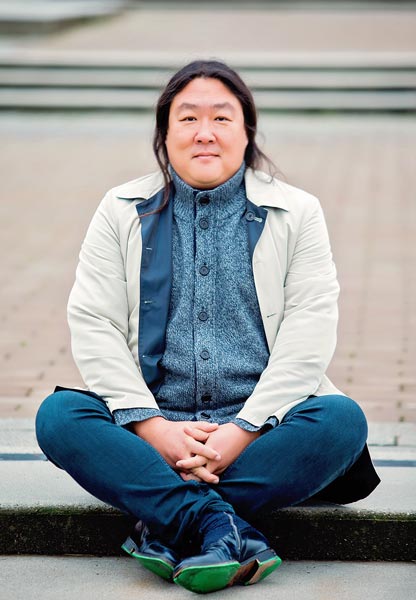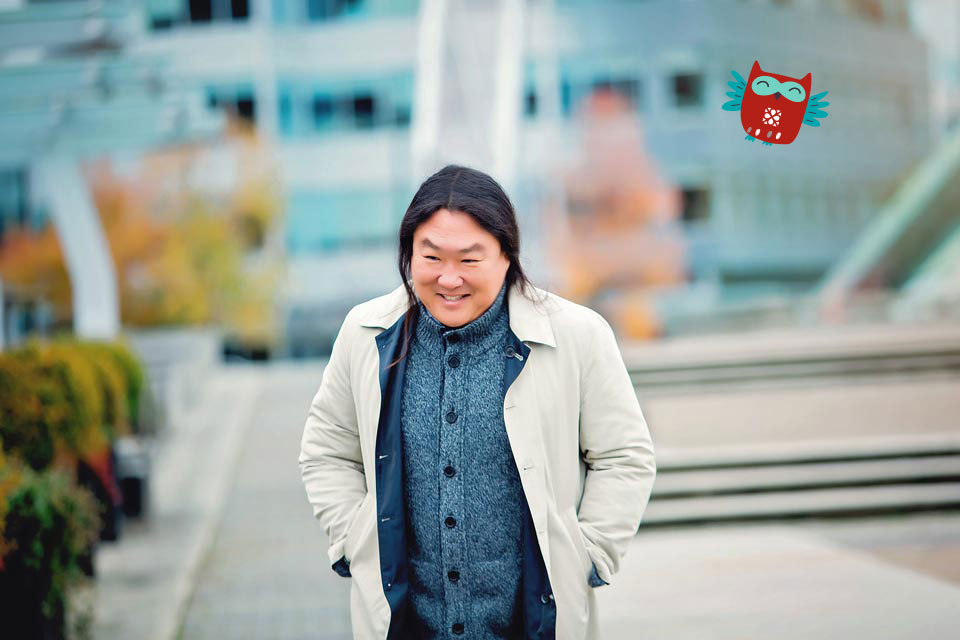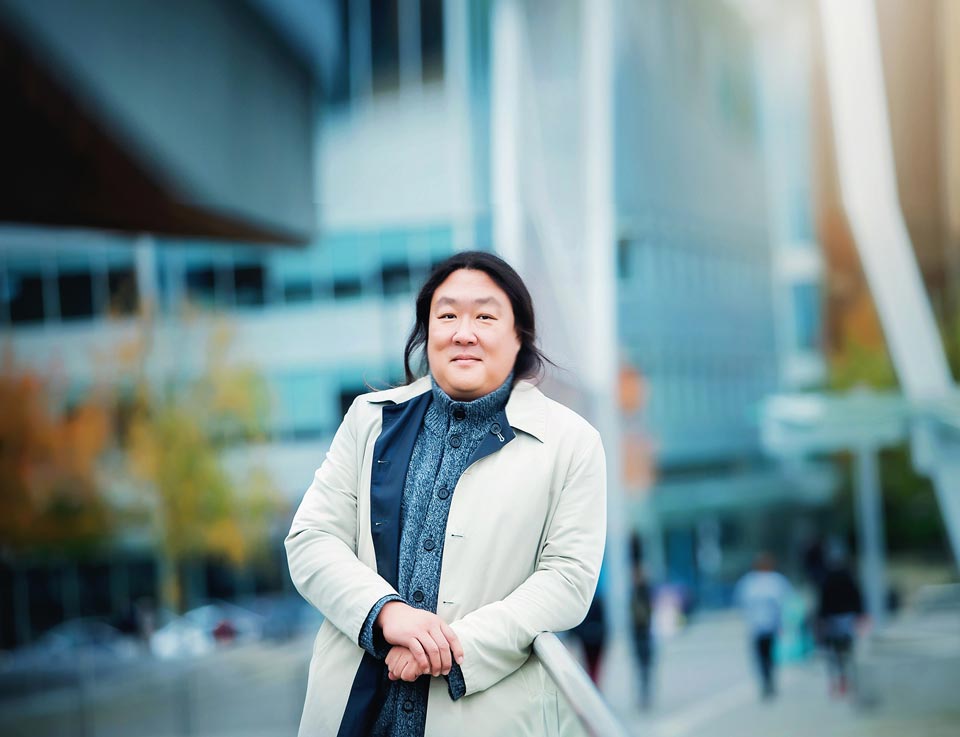Rulesware recently celebrated its 15-year anniversary. We sat down with CEO Anthony Lee to get his thoughts on how a feisty little start-up rose through the ranks to hit this milestone and to become the respected Pega partner it is today.
CH: Anthony, thanks for chatting with us today. Wow – 15 years of success…congratulations! How does it feel?
AL: It feels a lot shorter than that. I remember the early days—there was a lot of scrambling, hiring, getting deals, and of course stressing about payroll and managing costs. Business process management was a whole new industry so hiring was hard.
CH: What motivated you to start Rulesware in the first place?
AL: Well, I was a programmer. I learned delivery when I was mentored by a sales guy at another company, and eventually I realized the only way I was going to work for a company I truly loved was to build my own. Software development was my area, and when I found Pega I had a sense that hey, wow, this is amazing software. I got this idea like… let’s just do it! A small group of us put our own money in and lived on our savings for the first half of a year. We never envisioned we’d get to the level we are at today. But when we started seeing these large companies working with other consultants, spending way too much money and getting nowhere, we really saw we could provide such a better service. Companies don’t need to spend that much.
 CH: What made you decide to open the office in El Salvador?
CH: What made you decide to open the office in El Salvador?
AL: We knew we had to develop a near shore outsourcing model, and we felt that real time collaboration was absolutely essential—a lot of bigger companies don’t want that, they want the wall between clients and their developers, but I think collaboration is key, so we wanted to be in the central eastern time zone. I went down to El Salvador for two weekends—I attended Christening party and a cruise, and just explored the city and just fell in love with the people. I thought okay, we can do business here. I got emotionally invested and we hired our first six people right away.
CH: What kind of person did you—and do you—look for when hiring at Rulesware?
AL: We want people who are entrepreneurial—good problem solvers, collaborative, and hungry. We want the best of the best.
CH: Other than hiring great people, why do you think Rulesware has succeeded the way it has over these last 15 years?
“We’re good to our clients. We’re honest with them—we don’t lie to them, and that’s key.”
AL: We’re good to our clients. We’re honest with them—we don’t lie to them, and that’s key. Sometimes that doesn’t work out and that’s when we walk away. We choose to work with people who appreciate us being honest with them—sometimes the truth hurts a little bit, but I don’t want to waste a client’s money or cheat anyone. We are selective with our clients and won’t do anything ethically or morally questionable. We want every dollar we earn to be an honest one, and we want everyone—our employees and our clients—to be treated honestly, openly and fairly. We aren’t about schmoozing and going golfing with the good old boys, we’re about doing it right the first time and providing value for money. I think we’ve had success because of how we behave, what we believe in, and how we treat people. At the end of the day we want to feel like good humans.
CH: How has your Korean background impacted the way you run this company?
AL: I grew up with the sense your life is not totally your own—there’s a Buddhist philosophy that we are all part of something bigger. In our culture the individual isn’t the most important; you make sacrifices for the good of the whole group. We may not always please everyone but we make decisions that are best for the whole. A lot of old world cultures have strong values like this—the Celts, old Greek, old Chinese—it’s about family. You have to look out for the whole group and make personal sacrifices. It’s not always about profit. You have to be able to resolve issues internally, to be open and to try to find peace. Mentorship and helping each other along the way is also key. It is important to love the individual, but to also appreciate them in the context of everyone else.
“I grew up with the sense your life is not totally your own—there’s a Buddhist philosophy that we are all part of something bigger.”
CH: It’s been noted that the workforce at Rulesware is unusually diverse for a technology company. How did this come to be?
AL: Here we care more about what you can do than what you look like. We made a conscious decision to look at our hiring practises and go purely on capabilities, education, background and interview performance—it’s not always about the most aggressive or outspoken candidate. We value quiet competence as well as the more extroverted sort here. We are getting a higher percentage of women because our hiring practices don’t favor men. I personally ask to look at our pay bands to make sure there is zero discrepancy in salary between men and women doing the same job. Why would you ask anyone to give you a 70 cent discount on the dollar? I mean, let’s be honest, technology is still a male dominated industry, but we want to be a meritocracy here. It’s about what you put on the table—whether you’re black, white, gay, straight, a woman or a man—it doesn’t matter to us. A lot of companies say that, but it isn’t true, here we mean it.
“Here we care more about what you can do than what you look like. We made a conscious decision to look at our hiring practises and go purely on capabilities, education, background and interview performance—it’s not always about the most aggressive or outspoken candidate. We value quiet competence as well as the more extroverted sort here.”
CH: It’s also been mentioned that at Rulesware some employees have been able to rise quite quickly through the ranks. Is there a conscious decision to promote from within here?
AL: Definitely. We aren’t a bank or a country club—we’re a technology company, and we have the ability to innovate and change rapidly. People have to know that you can achieve things here based on your merit, you don’t have to wait years and years to get there. Even if you don’t have experience, if you are a high performer with a will and a heart and can achieve things, we will support that. Our people are pretty amazing. It always surprises me how much they can learn in a short time how good they are at what they do. I am probably a much slower study than they are, some juniors come from humble backgrounds and see that there is real opportunity here. One interviewee drove for hours on a motorcycle and slept on the street to make it to an interview here—that is the kind of person who works here. The people who work for us are remarkable, so it just makes sense to promote internally first.
“One interviewee drove for hours on a motorcycle and slept on the street to make it to an interview here—that is the kind of person who works here.”
CH: What does success look like to you?
AL: When I was a teenager I wanted to change the world. I hated injustice and inequality and wanted to make things better. But as I got older I understood the limitations of my own power—I was a programmer, not a revolutionary. But within my world, I could still change things a little. Today we can go into countries like El Salvador and Mexico and give people the chance to be part of something that could change their life. This applies to our team members in Canada and the US too—we want to show people how to do it the Rulesware way. Success is about modelling decent, good human behavior. And it’s not just about teaching, it’s about learning too. Learning about the culture in El Salvador changed us in a lot of ways for example—it wasn’t about us going in and showing them how to do things, it was often the other way around. I love the people in this company. I am very, very proud of them. To me that is what success looks like.
“When I was a teenager I wanted to change the world. I hated injustice and inequality and wanted to make things better. But as I got older I understood the limitations of my own power—I was a programmer, not a revolutionary. But within my world, I could still change things a little.”
CH: Looking ahead to the future, what’s on the horizon for Rulesware?
AL: I feel like we’ve hit our groove now. We’re really at a stage to determine more what we want to do and new areas we want to expand into. This will give rise to opportunities for more of our people. It’s not just about hitting a specific marketing number or headcount, the future will be about empowering our people; giving them the chance to take their careers to a new level, to explore their potential in life. At the end of the day our company is about people. That always has to remain our focus, so looking to the future we are making decisions around what type of service business model changes people would love to see, what will really expand our horizons.
CH: Any final thoughts?
“Every morning I wake up look out my window and get that feeling of gratitude. And I feel humbled. It’s not me who created this—it’s the people around me who have given me this opportunity. I’m very grateful.”
AL: Looking back over the last 15 years, I feel incredibly lucky. I am so grateful I had this opportunity. I never thought I’d have the chance for something like this ever, ever. Every morning I wake up look out my window and get that feeling of gratitude. And I feel humbled. It’s not me who created this—it’s the people around me who have given me this opportunity. I’m very grateful.




